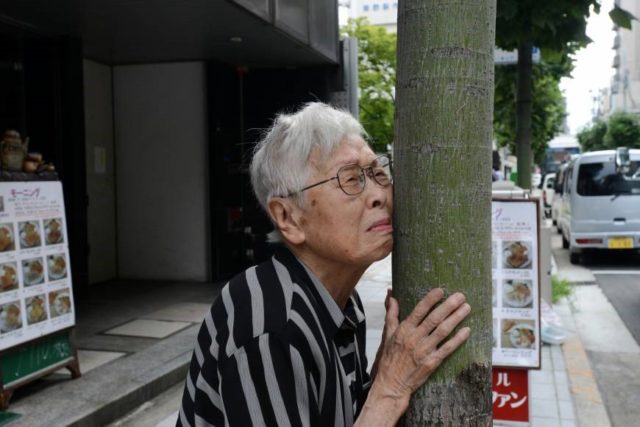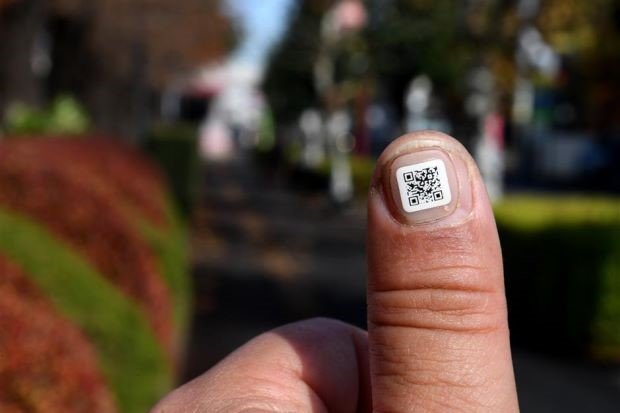Japan realises that old-age homes aren’t the solution to its large population of elderly citizens, especially when a good number of those are suffering from dementia. A little towards the extreme, but an effective step taken by the Japanese is to tag citizens with QR codes to help the disoriented citizens, when and if required.

How Does The Tag Help?
The tag is basically a transparent sticker with a QR code and is stuck on the citizen’s nail. The sticker is made water resistant and lasts for about two weeks before it has to be changed. On scanning the code, the person’s name, address, phone number and a person for contact is revealed. People who find lost patients on road, need to take them to the nearest police station from where it becomes easier to locate the family of the patient.

It Is A Small Step
This system of tagging citizens is a rather recent development in Japan. The stickers have been introduced by a company based in Iruma, Japan only a month ago. The spread of the stickers is still limited, but the company is trying its best to reach out to the citizens who constitute 26.7% of the total population, by making the tags available for free.
Although, this is not the first time that Japan has developed a technique to monitor and help its dementia patients. The country has earlier engaged itself in providing ID stickers for clothes and shoes, but it has not been all that effective, because well, it’s not necessary that the patients are always wearing the tagged clothes.
How Effective Will This Be?
Concerns are raised relating to the safety of this move. It is a QR code after all. The details carried by the code are out there in the open and can be easily misused. However, on the other hand, it is probably a better step towards helping lost citizens meet their loved ones. Confidentiality of the information is important, and safety of the patients can be ensured if and only if the information is restricted in its access to authorities and family members.
At the same time, this measure can also become a little cumbersome over time. Families need to ensure that the tags are replaced every two weeks, otherwise, the entire process will become redundant.
For a country like Japan, tackling a rapidly ageing population every small step taken to support the elderly will turn out to be a boon to the country.
On the contrary, a country like India is still fighting to keep its senior citizens safe, not from strangers who would probably steal from them, but from domestic violence. More so, the increasing number of old age homes seem to be the only solution that we Indians have been able to come up with to cater and serve our elderly population. It cannot be denied that our population is much more than that of Japan, and services like these would probably not work in India, but this does not mean we stop trying.
For starters, we could just work on increasing sensitivity towards the older generations and stop treating them like a liability. Simultaneously we need to work out a system, probably like those adopted by the Japanese and it won’t be long before India too will be a better and safer place for its senior citizens.
You May Also Like:
I Was Full Of Tears Coming Back From An Old Age Home Seeing The Condition Of Old People In India




































